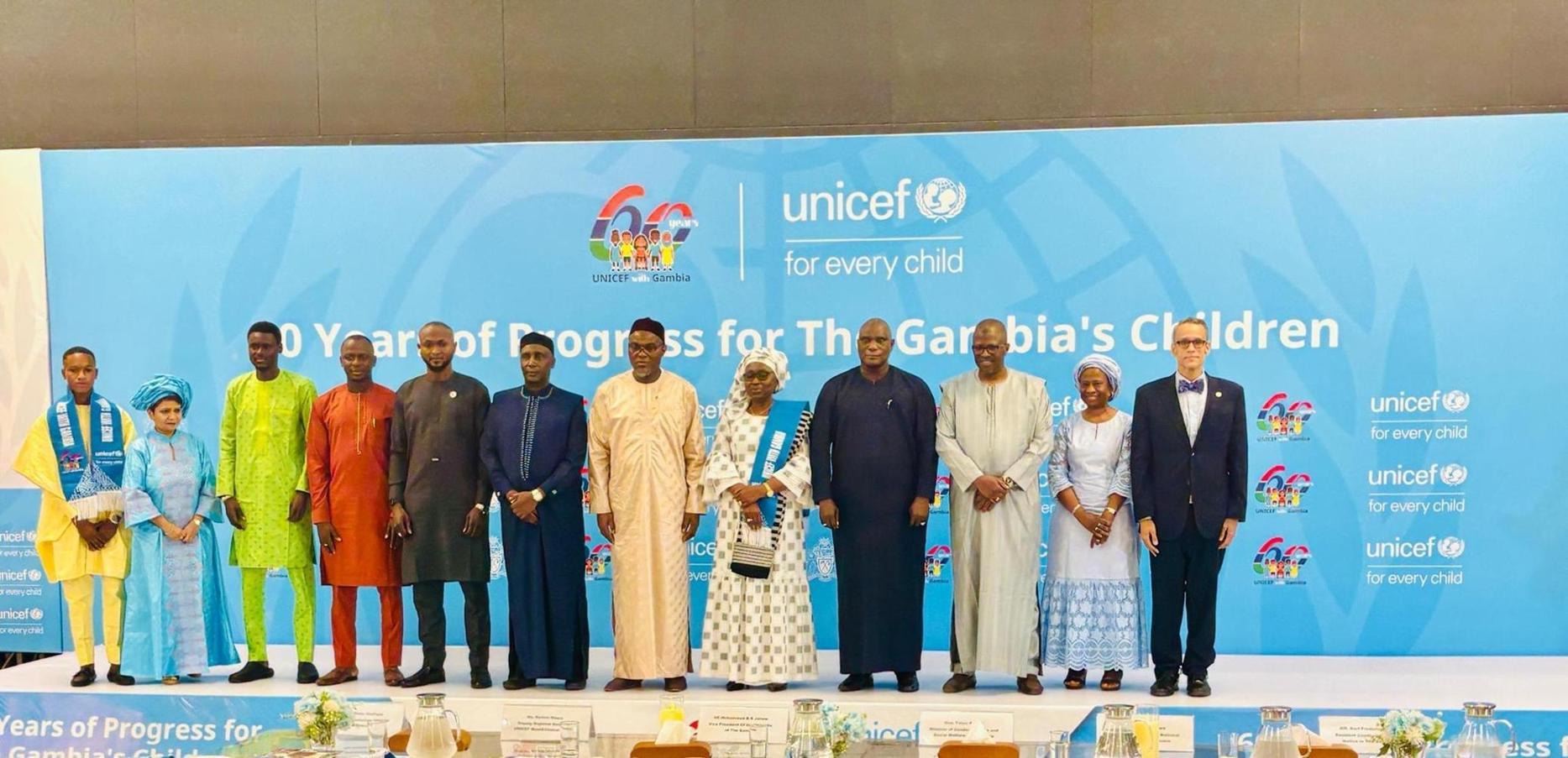Africa-Press – Gambia. The Gambia on Monday commemorated six decades of partnership with UNICEF, using the milestone to reflect on progress made for children while urging faster, more coordinated action to address persistent challenges.
The event, held at the Sir Dawda Kairaba Jawara International Conference Centre in Bijilo, drew senior government officials, UN representatives, civil society leaders, and dozens of children.
Vice President Muhammed B.S. Jallow, delivering the keynote address, hailed UNICEF’s “unbroken commitment” to Gambian children since opening its office in 1964.
He said the partnership has strengthened health services, expanded childhood vaccination, and boosted programmes supporting early learning and girls’ education. “A child born in the remotest part of this country today can access life-saving vaccines because of the systems we have built together,” he noted, calling the National Immunisation Programme one of the country’s most reliable public-health achievements.
Minister of Gender, Children, and Social Welfare, Fatou Kinteh, commended UNICEF’s support in promoting inclusive education, child protection, and early-childhood development. She highlighted ongoing efforts to combat harmful practices, including child marriage and FGM, stressing that “every child deserves the opportunity to grow up protected, educated and valued.”
UN Resident Coordinator Karl Frédérick Paul said the anniversary was a reminder that investing in children is not optional, given that they make up the majority of the population. He praised progress in health, education, and sanitation, but warned that setbacks from malnutrition to school dropout rates continue to affect thousands of children. “If children represent more than half our population, then our national urgency must reflect that reality,” he said.
Representing UNICEF’s regional office, Deputy Director Ramou Ndure applauded the government’s collaboration but urged swifter action to keep pace with emerging threats. “Our words must become action,” she insisted, adding that innovation and coordinated investment are critical for the next phase of progress.
Children themselves played a central role in the day’s activities. Babucarr Sowe, Speaker of the Children’s National Assembly, thanked UNICEF for elevating children’s voices but issued a blunt reminder that many child-protection laws remain unenforced. “Too many children are still neglected and too many violations go unpunished,” he said, calling for safe learning environments, clean water, and accessible healthcare.
UNICEF Country Representative Nafisa Binte Shafique described the 60-year journey as one of “shared commitment,” but emphasised that the coming years require even greater determination. She urged stakeholders to accelerate reforms and ensure that children’s needs guide national planning.
As the ceremony concluded, the collective message from children, policymakers, and development partners was clear: six decades have brought progress, but protecting and empowering every Gambian child demands renewed energy, stronger enforcement, and bold decision-making.
For More News And Analysis About Gambia Follow Africa-Press






